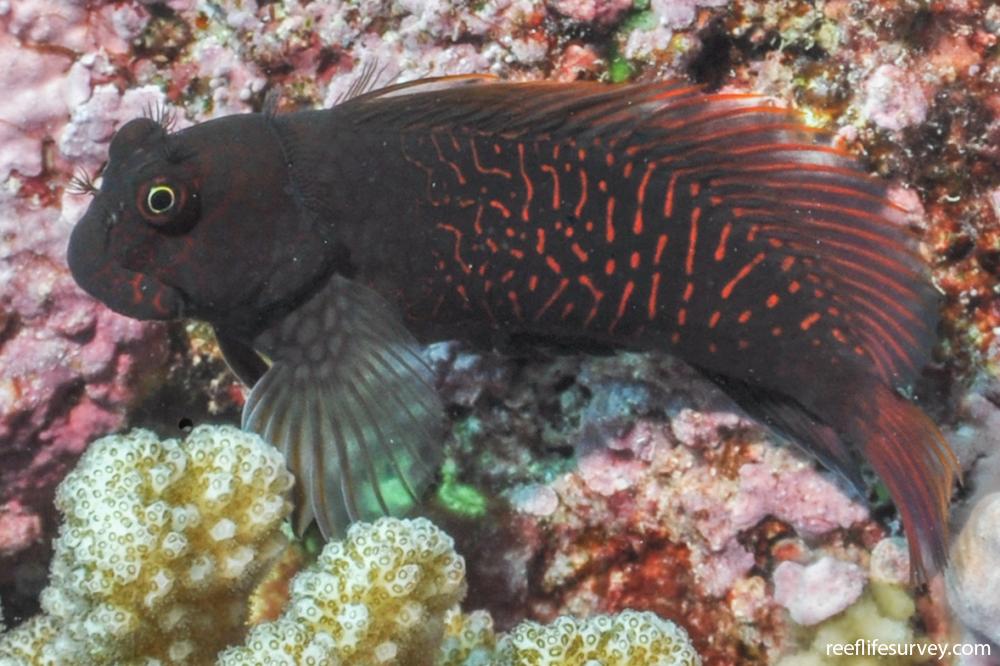Cirripectes stigmaticus
Redstreaked Blenny | Red-streaked Eye-lash Blenny | Reticulated BlennySimilar Species
Same Genus
Distribution
Tropical Indo-Pacific
Description
Blunt head and relatively heavy body, fringe-like line of cirri on nape, and eye with gold iris surrounded by red. Males with head and fore-body reddish-brown, covered in light dusky spots and blotches, rear three-quarters of body dark brown with red spots and lines. Females reddish brown with light dusky spots blotches and bars on head and body. Both with varying levels of red/orange on dorsal and tail fins. Like most Cirripectes species, sits motionless on reef until approached then rapidly darts for cover making identification difficult.
Information
Max Size: 13 cm
Sea Temperature Range: 20.2-29.9°C
Depth: 0-20m
Habitat Generalization Index: 15.53
Also referred to as the SGI (Species Generalisation Index), this describes the habitat niche breadth of the species. Species with values less than 15 are found in a relatively narrow range of reef habitat types (specialists), while those over 25 may be found on most hard substrates within their range (generalists). Learn more here.
Conservation and Rarity
IUCN Status: Not Evaluated
Occurrence: Common (26.3% of sites)
Occurrence describes how often the species is found on surveys within its distribution. It is calculated as the % of reef sites surveyed by RLS divers across all the ecoregions in which the species has been observed
Abundance: Few (3 per transect)
Abundance is calculated as the average number of individuals recorded per RLS transect, where present.
Edit by: Joe Shields















![Cirripectes alboapicalis [green form]](https://images.reeflifesurvey.com/1/species_ca_66443c29d7fbc.w400.h266.jpg)




![Cirripectes sp. [dark eye]](https://images.reeflifesurvey.com/0/species_a4_575aaaa34e738.w400.h266.JPG)
